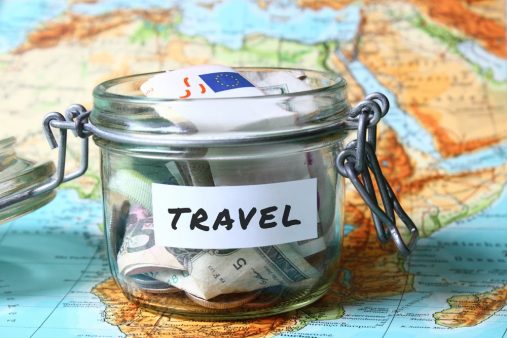How to save for an experience abroad
7 August 2019
Whether you are going on a study abroad placement or a summer volunteering programme, it is always difficult to save up for them.
All world-wide adventures, no matter where you go or what you do, require money and sadly, this does not grow on trees. Luckily, there are plenty of websites and apps that can help you budget prior to jetting off. Determining where you are going and for how long are key to establishing your daily costs and will outline approximately how much you will need to save.
Pre-Travel Saving
Track your spending
Travel debit cards such as Monzo are ideal as they help you keep tabs on your money. They also do not charge transaction fees abroad and provide a good daily conversion rate.
Stop spending on material and unnecessary things
We’ve all been there. You go for a quick “browse” in town and before you know it you’re going home with a new pair of trainers, two dresses and a random kitchen appliance you will never use. However, this is not going to secure you flights to your dream destination so try and weigh up what is most important to you!

Charity shops are your new best friend
Cheap, cheerful and great for the environment. It’s a win-win!
Skip the daily coffee on the morning run
Its always those little costs that go unnoticed but equally create the biggest dent in your bank account. Make your coffee at home or try and limit your purchases to 1-2 times a week.

Get selling
Have a clear out and start listing online. It is surprising what you can sell for a bit of extra cash and it all adds up!
Walk
Ditch the car and walk to work. If not, consider investing in a bike or taking public transport.
Budgeting on the Go
Stay in Hostels
Look around (TripAdvisor is my go to) and see where the best deal is at. Hotels and B&B’s can sometimes be just as cheap, if not cheaper.
Use public transport
Avoid the taxi temptation and get yourself on a bus or a train. Getting a metro card can also help you to track how much you are spending on travel.
Eat street food
Not only tasty and cheap, but eating street food can be a great way of experiencing the authentic culture of a place.
Barter and shop around
Always look around for the best deals and attempt to smooth-talk your way into better prices.
Use cash
That contactless payment habit may be convenient but it often leads us to making unnecessary spends. Keeping cash so you can see exactly how much you have will encourage you to consider everything that you’re buying.
How to save for an experience abroad
7 August 2019
Whether you are going on a study abroad placement or a summer volunteering programme, it is always difficult to save up for them.
All world-wide adventures, no matter where you go or what you do, require money and sadly, this does not grow on trees. Luckily, there are plenty of websites and apps that can help you budget prior to jetting off. Determining where you are going and for how long are key to establishing your daily costs and will outline approximately how much you will need to save.
Pre-Travel Saving
Track your spending
Travel debit cards such as Monzo are ideal as they help you keep tabs on your money. They also do not charge transaction fees abroad and provide a good daily conversion rate.
Stop spending on material and unnecessary things
We’ve all been there. You go for a quick “browse” in town and before you know it you’re going home with a new pair of trainers, two dresses and a random kitchen appliance you will never use. However, this is not going to secure you flights to your dream destination so try and weigh up what is most important to you!

Charity shops are your new best friend
Cheap, cheerful and great for the environment. It’s a win-win!
Skip the daily coffee on the morning run
Its always those little costs that go unnoticed but equally create the biggest dent in your bank account. Make your coffee at home or try and limit your purchases to 1-2 times a week.

Get selling
Have a clear out and start listing online. It is surprising what you can sell for a bit of extra cash and it all adds up!
Walk
Ditch the car and walk to work. If not, consider investing in a bike or taking public transport.
Budgeting on the Go
Stay in Hostels
Look around (TripAdvisor is my go to) and see where the best deal is at. Hotels and B&B’s can sometimes be just as cheap, if not cheaper.
Use public transport
Avoid the taxi temptation and get yourself on a bus or a train. Getting a metro card can also help you to track how much you are spending on travel.
Eat street food
Not only tasty and cheap, but eating street food can be a great way of experiencing the authentic culture of a place.
Barter and shop around
Always look around for the best deals and attempt to smooth-talk your way into better prices.
Use cash
That contactless payment habit may be convenient but it often leads us to making unnecessary spends. Keeping cash so you can see exactly how much you have will encourage you to consider everything that you’re buying.